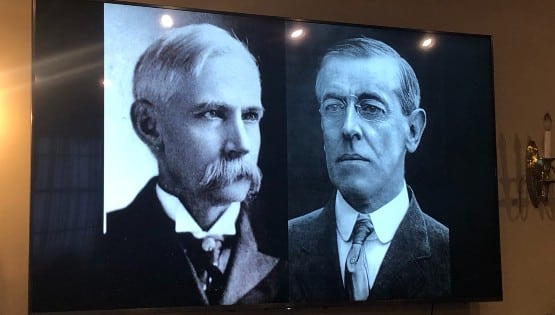Story by Chris Graham
Story Ideas: [email protected]

“Agritourism as a term is new, but the concept has been around for a long time,” said Elaine Lidholm with the Virginia Department of Agriculture and Consumer Services, who grew up on a farm outside St. Louis, Mo., in the 1950s and 1960s, and watched her parents develop a very informal agritourism business with a dedicated campground and log cabin to accommodate visitors and harvest festivals that brought people out to the farm to buy their produce.

The agritourism concept is similar to what Lidholm grew up with in the ’50s and ’60s. “Farmers need to look at ways to keep viable and prospering. Agritourism is one of those ways. It compliments everything else they’re doing,” said Nancy Sorrells, a member of the Augusta County Board of Supervisors and vocal agribusiness advocate.
The talk about the need for a focus on agritourism in county economic-development policy is heating up as the ag industry in Augusta County is both growing and contracting, based on the numbers. From 2002 to 2007, there was a 2 percent growth in the number of farms in Augusta County, bucking the conventional wisdom that farmers are fleeing the industry in search of greener economic pastures. But in the same time frame, the number of acres devoted to agriculture shrank from 306,000 acres in 2002 to 286,000 acres in 2007.
“The pressure on farmers is clearly there,” county economic-development director Dennis Burnett said.
The county economic-development plan includes among its action points the development of strategies to help farmers grow and diversify their businesses. “That very clearly to me is a direction to promote diversity in the agricultural community,” Burnett said.
“The potential is here. The issue is getting our hands around it and seeing where we can take it next,” Burnett said. “It contributes to the bottom line if we can make farming more economically viable. And at the same time, it preserves our rural landscape. It can be a win-win for everybody.”
“Everybody wants to save agriculture, but you can’t save it sitting in your living room drinking coffee griping about somebody building a house. You have to do something about it. Unfortunately we don’t have a bunch of wealthy retired people willing to buy up all the farmland and say, OK, it’s all preserved for the next hundred years, good luck. It’s not happening,” said Craig Nargi, a restauranteur-turned-stable owner, at Hermitage Hill Farm and Stables just outside of Waynesboro, who jumpstarted the agritourism talk with an event at his farm back in October.
To Nargi, what needs to happen is farmers thinking agritourism need to get together with county officials on issues involving planning and zoning and the development of information packets and economic-incentive packages to help farmers through the process.
“We need to be cognizant of the fact that life happens. Don’t handicap us. Don’t stop us from doing what we need to do,” Nargi said.











